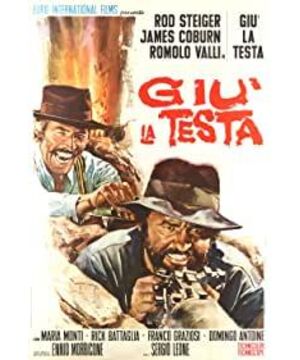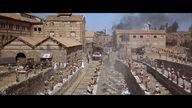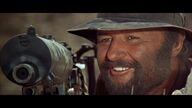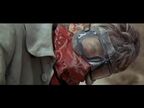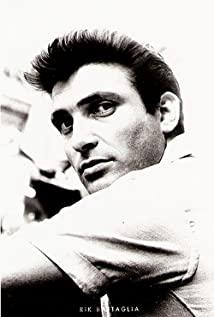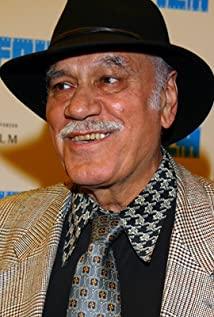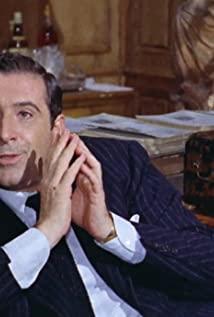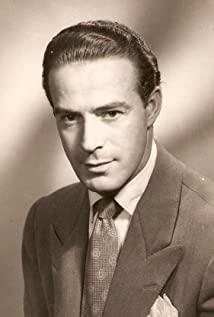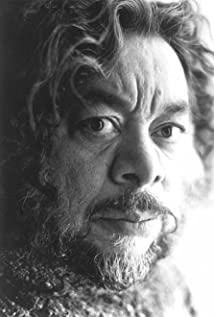Let’s talk about the more intuitive first, Leone is definitely a master of narrative, you don’t need to think about more descriptions when watching such a movie, the first thing that pops out is “good-looking”! In fact, we have seen a lot of these elements, such as war, explosion, and love between men. It is not surprising, but after Leone's hands, it is very attractive and very eye-catching. Why is it so beautiful? This is the superb storytelling skills of Leone. From this film alone, we can see the reasons why many latecomers have learned from him. His technical application has been perfected, especially the montage cutting of subjective shots. In the opening paragraph of the film, there is a group of Criticism of the Mexican exploiting class, it's a close-up of a row of mouths owned by high-class people in a caravan who are eating and taunting the stupid and mean-looking peasant in the car (actually bandits), the background voice also shuttles through their very mean "animals" and "beasts" to the peasants. The peasant's honest and slightly annoyed face is strung together with a big mouth, and the director's intention can't be more obvious: these rich bastards are born to be beaten. While alluding to the theme of the revolution, they set the stage for their impending retribution. When describing the experience of the Irish Demoman, Leone inserted flashbacks from his time in the Irish Revolution from time to time, and let the theme sound of the Demoman designed by Monicone appear on the background sound. Without a line, his mood, his feelings towards him The narrative of the past has all been completed. He especially likes to close-up the actors. Even in the section of the bridge ambush, he did not forget to close-up the soldiers who were strafed. All you can see is that faces that have not yet clearly appeared should fall to the ground. At that time, I had an idea, was it a supplementary shot? However, a close-up really makes the tension a lot deeper. However, for the protagonist, under his close-up, the pressure is still very high, because it is also related to the times. The shots he gives to each actor are always very long. For example, the first time the peasants saw the power of the blaster, the blasting in front of him There seems to be a banner hanging on hand (MS Spanish, presumably means an angel or something), if this shot is placed now, maybe 2 to 3 seconds have passed, but Leone let Coburn pose for half a minute, The farmer's comrades were ambushed in the back, the farmer's family was killed, and the sad farmer's fat face was featured for nearly a minute - it was really hard for Steiger. In fact, according to the current editing method, this 146-minute film will only take about 100 minutes to tell the story, but that is Leone's label. Leone's long lens is also very special It's like when the peasants first arrived in Meversad, there was a poster on the train station that was probably the ruler of Mexico at that time, but without the relevant knowledge, we didn't know who he was at all. Leone quickly gave a long shot, a wandering long shot, as if to describe the situation in a nearby barracks, but soon, drifting to a team that was about to execute a shooting, the camera took the trouble to let us see the victims every The state of the individual, the last of them spat at the poster on the wall next to him. When the shooting was about to be executed, the camera left unexpectedly and continued to wander. At this time, we could still hear the password behind us until the camera stopped. On the poster on the wall of the barracks, the man's eye was torn open at this time. It turned out that the farmer was peeking behind the poster, and the moment the farmer's eyes appeared, the gun went off. Such a perfect set of narratives, without a single line, but you have made it clear that the guy on the poster is definitely not a good person, and it is smoothly connected with the subsequent plot. Finally, the poster is torn apart, which is both ironic and a bit metaphorical. smell. Having said so much, in fact, just one sentence, Leone, cow!
If his recognized masterpiece "Once Upon a Time in America" is a lyrical poem with a melodious tune, this "Once Upon a Time in Revolution" is nothing more than a paediatric study with many spectacle scenes and superb narrative techniques. Let me read this story: A Mexican bandit encounters a Demoman who failed in the revolution in his hometown of Ireland. He wants to pull a skilled Demoman to rob a bank, but the Demoman takes the opportunity to bring him into the Mexican Revolution, and he goes to hell. Confused to rescue political prisoners and become a revolutionary hero. But after the uprising was betrayed by the traitors (which was almost inevitable), the disheartened two did not intend to leave, but instead got involved in a battle, and the revolutionary army seemed to have the upper hand. In the last ambush battle, the traitor used sacrifice to complete the redemption, the Demoman sacrificed heroically, and the bandit's eyes were full of confusion. A story whose rhythm is traditional to the point of being a little trite. But the script is still the best level that can be achieved. The plot of the lines is far less direct than the camera, but it lubricates the story a lot and makes it more interesting. But the ideological simplicity of this story is not much stronger than the red classics like "Little Soldier Zhang Ga". The binary opposition is very obvious. Two rotten watermelons are asking me for money.” The villain in this movie, like the colonel, doesn’t have any lines except for a few military commands. Di has shouldered the historical responsibility of finally giving the Demoman a black gun, and he has already reached the point where he can no longer make a face. There are also the nobles in the caravan at the beginning, the director desperately exaggerates their arrogance and sensuality, and later the bandits stripped them naked and raped women. These actual atrocities have also become a matter of course in the eyes of the audience because of the previous foreshadowing. The ending, the lighthearted and cheerful soundtrack even added some pseudo-carnival colors to this crime scene - of course, this is what I thought after watching it, and I would rather open my mouth and be happy when I watched it - just like in "The Lu Ding Ji". The understated words "Hu Tian Hu Di" gamified Wei Xiaobao's rape. At the beginning of the film, it also quoted Lao Mao's "Political power grows out of the barrel of a gun", making it clear that he should take a simple and rude line. So what we see are the real romantic heroes in detail. This reality does not mean the spectacles they experienced, but the shaping of the characters. When the Mexican bandits captured the enemy's boss, they still did not forget to bow their heads. Counting money is very real, but the background of this revolution is too vague. A complex revolution, complex people, has simply become a binary opposition like a mainland history textbook. So, from this perspective , "Revolutionary Past" is not much different from some red classics. Don't forget, "Tunnel Warfare" and "Little Soldier Zhang Ga" are still very entertaining, and this entertainment may be a factor that the film did not want to emphasize at the beginning of the filming, or even added to make the soup fresher Monosodium glutamate, but unfortunately, now, let us remember, it is precisely these monosodium glutamate. "Revolutionary Past" does not have the task of ideological propaganda, its key is to entertain, so although it has a similar ideology, it is not the point at all, even if the film is watched by a rich man, he will still laugh Will be moved by the actions of the heroes, because the real people have been established and the ideology is hiding behind the scenes. But if you want to study it carefully, ignoring the splendid splendor of the images and the splendid scenery of the characters, the content that can be said in "Revolutionary Past" is too poor - although the peasant bandits said "Revolution, revolution is just a group of urban People came to the village, incited the peasants to go to war, and then they ate and watched, and sat in high positions, but the peasants died." There are many shining lines, but there is no similar plot to support such lines. Become a good sentence to be picked up.
Considering the many twists and turns when Leone made this movie, it is not easy for the movie to be in this shape. The extremely high level of technology and narrative, and the intentional blind spot in ideology make this movie a very interesting movie. The combination.
View more about Duck, You Sucker! reviews


